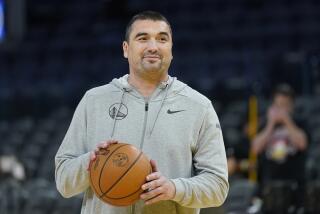Heart Attack Killed Milosevic, Report Says
- Share via
AMSTERDAM — Former Yugoslav President Slobodan Milosevic died of natural causes -- a heart attack -- after taking unprescribed medicines and ignoring orders to quit smoking, according to a report issued Wednesday by the U.N. war crimes court that was trying him.
In the most complete survey of the events leading up to Milosevic’s death March 11, the report clears U.N. authorities of giving inadequate medical care and dismisses claims that he had been killed during his trial.
“Despite allegations that he was the victim of murder, especially by poisoning, these investigations have confirmed that Mr. Milosevic died of natural causes,” the report says. “There was no poison or other chemical substance found in his body that contributed to his death.”
Investigators also ruled out suicide and violence in Milosevic’s death in his cell in the Dutch town of Scheveningen, according to the report by tribunal Judge Kevin Parker.
The former president’s son, Marko, has alleged that Milosevic was killed. Three days before his death, Milosevic had alleged that he was being given a leprosy drug deliberately “to damage my health.”
Rifampicin, an antibiotic used to treat leprosy and tuberculosis, was found in a blood sample taken from Milosevic on Jan. 12, though not in samples taken two months later during his autopsy, nor in more detailed toxicological studies, the United Nations said.
“On a number of occasions, Mr. Milosevic refused to accept the advice of his treating doctors,” the report says. “He refused to take some prescribed medications and varied prescribed dosages of others. He also self-medicated,” it says, citing evidence of other drugs found in his cell and in his blood.
Investigators interviewed more than 60 people, including prison staff, detainees, doctors, lawyers and Marko Milosevic.
The former president had faced life in prison if convicted. His indictment, which included the charge of genocide, involved the Balkan conflicts of the 1990s, which left more than 225,000 people dead.
His trial began in February 2002, and he insisted on representing himself in court “despite often-repeated medical advice that it was dangerous for him to bear the burden and stress,” Parker said.
Milosevic had asked to be released to seek medical care in Russia, a petition that was denied. His cardiologist and two independent doctors said heart surgery was unnecessary; that opinion was disputed by a Moscow doctor.
More to Read
Sign up for Essential California
The most important California stories and recommendations in your inbox every morning.
You may occasionally receive promotional content from the Los Angeles Times.











